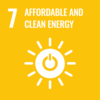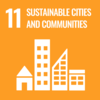The study highlights the adept schemes for successful co-composting of food, fruit and green waste, with a mechanism to mitigate carbon leakage in the developing countries. The present study deals with implementing green building concept to improve energy efficiency through the adaptation and integration of technologies to achieve decarbonisation target to limit global temperature to 1.5 degrees Celsius to avoid catastrophic impacts of climate.
Under dynamic modelling, the present pioneer work analysed three aspects to maximize on site renewable energy to reach the net zero energy target. The three aspects are (i) solid waste management (ii) solar grid system (iii) grey water potential. The present study aimed to analyze and compare the impacts on the environment due to MSW management, solar grid system and grey water use potential scenarios evaluating greenhouse emission to achieve “Net Zero Energy Building (NZEB)”.The key strategies in transition to green building, mitigating climate change and achieving carbon foot print benefits.
The study is to highlight best organic waste management strategies to achieve carbon foot print benefits in co-composting of food, green and fruit waste using aerobic windrow composting. The study prevented emissions of 346.7 million tons of carbon dioxide , generating 346 carbon credits and produced 564 quintals organic compost with standardised parameters. The study bagged United Nations (UN) Sustainable Development Goals (SDG) Action award in Individual category (“Environment Sustainability”) and was recognised at the 26th International Congress of IFHE-International Award, Italy.
Annual carbon savings:



